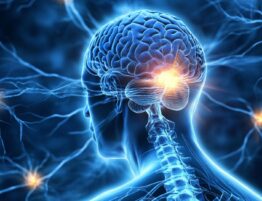The field of neurology focuses on the brain and nervous system. It is experiencing significant changes thanks to advancing technology. Among these changes, artificial intelligence in neurology is making a tremendous impact. AI helps doctors understand complex conditions better and faster than before.
AI acts like giving doctors a smart assistant that spots patterns. It can identify issues in ways humans might miss completely. One of the biggest advantages of AI is its ability to catch problems early. Early detection of brain diseases like Alzheimer’s, Parkinson’s, or tumors makes a difference. It can dramatically improve treatment success and patient quality of life.
When doctors identify issues sooner, they can start treatment earlier. This often leads to significantly better outcomes for patients overall. This article explores how AI is transforming neurology today. We’ll cover everything from detecting diseases to helping doctors work efficiently. We’ll also examine what the future of AI in neurology holds.
AI Tools Revolutionizing Brain Disease Detection
AI is transforming how doctors detect brain conditions and neurological disorders. At the heart of this transformation is AI for brain disease detection. It uses sophisticated computer programs to analyze medical data effectively. One key tool is machine learning for brain scans. These systems analyze images like MRIs or CT scans carefully. They identify subtle signs of trouble that might be difficult for professionals to notice.
For example, AI can scan thousands of images in seconds. It identifies patterns like unusual shapes or sizes in brain tissue. These patterns could indicate disease or abnormal changes. These systems can detect abnormalities that might be too small for humans to catch.
Another significant aspect is AI in medical diagnostics. It processes vast amounts of data instead of relying on visual examination alone. This includes several important types of information:
- Brain scans and imaging data from multiple sources
- Patient medical records and detailed history
- Genetic information and biomarker test results
- Laboratory test results and clinical findings
All of this information helps create a clearer picture of patient conditions. These tools don’t replace medical professionals but act as sophisticated diagnostic aids. They can identify issues that humans might overlook due to fatigue. They also catch subtle signs of early disease stages.
For instance, some AI systems can highlight suspicious areas in brain scans. This helps doctors focus on potential problem areas more quickly. This collaboration between AI and medical professionals makes diagnosis faster and more accurate. This is especially critical for serious conditions like brain tumors or strokes.
How Machine Learning Enhances Early Diagnosis
The ability to catch diseases early represents a game-changing advancement in neurology. Early diagnosis of neurological disorders is where machine learning truly excels. Machine learning is a type of AI that “learns” from massive data amounts. It identifies patterns and makes predictions based on this information.
In medical practice, these systems are trained on thousands of brain scans. They also use patient records to recognize signs of disease. This happens before symptoms become apparent to patients or doctors. Here’s how it works in practice:
- Detecting Subtle Changes. Machine learning systems identify small abnormalities in brain scans. For example, early signs of Alzheimer’s might appear as slight shrinkage. This occurs in specific brain regions before symptoms develop.
- Predicting Risk Factors. AI tools analyze patient medical history and lifestyle factors. They also examine scan results to predict disease likelihood. This helps identify conditions like epilepsy or multiple sclerosis early.
- Accelerating Analysis. Instead of doctors spending hours reviewing scans manually, AI completes analysis quickly. It can finish the work in minutes and flag important areas. This saves time and allows faster treatment decisions.
For example, a hospital might use an AI tool to review older patients’ brain scans. The system could detect early diagnosis of neurological disorders that aren’t clinically obvious yet. This allows doctors to start treatments or recommend lifestyle changes immediately. Early intervention can slow disease progression significantly.
This early warning system is especially valuable for progressive conditions. Catching them early can significantly improve patient quality of life over time.
Benefits for Neurologists Using AI Tools
Doctors are discovering that AI tools for neurologists make their work easier. These tools also make their work more effective than traditional methods. These tools don’t just help with diagnosis – they improve patient care entirely. Here are key ways AI is helping neurologists today:
- Faster Diagnostic Process. AI can analyze scans and data much more quickly than manual review. This allows doctors to spend more time with patients instead of examining images. It improves the overall patient experience significantly.
- Improved Accuracy. AI detects minute details that humans might miss during examination. This reduces the chance of missing important indicators like small tumors. It also helps identify early stroke signs more reliably.
- Personalized Treatment. AI can suggest treatment plans based on individual patient data. This helps doctors tailor care to each person’s specific needs and conditions. Personalized medicine leads to better outcomes overall.
- Reduced Professional Burnout. AI handles repetitive tasks like image analysis automatically. This allows doctors to focus on complex cases and patient interaction. It makes their work more fulfilling and less stressful.
For instance, a neurologist using an AI tool might receive detailed reports. These reports highlight potential issues in patient brain scans completely. They also include suggested next steps for treatment or further testing. These AI tools save valuable time and help doctors make confident decisions. It’s like having an intelligent colleague who provides second opinions consistently.
These benefits are making AI essential in many neurology clinics today. They help doctors provide better care while managing heavy patient loads effectively.
Future Trends of AI in Neurology
Looking ahead, the future of neurology AI is full of exciting possibilities. New technologies are being developed that could expand AI’s role significantly. AI could transform neurology even further in coming years. Here are some key trends to watch carefully:
- Advanced Algorithms. Future AI systems will become even better at understanding complex brain data. They might possibly predict diseases years before symptoms appear in patients. This could revolutionize preventive medicine approaches completely.
- Wearable Technology. Devices like smartwatches could use AI to monitor brain activity continuously. They would track activity in real-time throughout the day. These devices could alert doctors to issues like seizures before they occur.
- Digital Assistants. AI-powered virtual assistants might help neurologists with daily tasks. They could organize patient data and suggest diagnostic tests automatically. They might even remind patients to take medications on schedule.
- Enhanced Imaging. New AI tools for neurologists could make brain scans clearer than current technology. They could show details that current methods miss entirely. For example, they might detect microscopic changes in brain cells early.
For example, imagine a future where patients wear monitoring headbands. These devices would track brain signals and send data to AI systems. If the AI detects an unusual pattern, it could immediately alert doctors. Doctors could then take quick action to prevent serious medical events.
Challenges and Ethical Considerations
While AI is accomplishing remarkable things in neurology, these systems are not perfect. There are several challenges and ethical issues that need careful consideration. These concerns must be addressed as AI becomes more widespread.
- Data Privacy. AI systems require vast amounts of patient data to function effectively. This includes scans and medical records with sensitive information. Protecting this sensitive information is critical for patient trust. A data breach could expose private health details to unauthorized parties. Hospitals and technology companies must implement robust security measures. They need strong protection to safeguard patient data properly.
- Accuracy Concerns. While AI tools for neurologists are excellent at identifying patterns, they are not always accurate. When AI makes errors, such as missing a tumor, problems occur. It might also incorrectly flag normal tissue as problematic. This could lead to misdiagnosis or unnecessary patient anxiety. Doctors must carefully review AI results to ensure accuracy before treatment.
- Fairness and Bias. AI systems are trained on existing data from past cases. If that data doesn’t include sufficient representation from diverse populations, problems arise. AI might not work equally well for everyone. For example, if training data primarily comes from one demographic group, issues develop. The AI might miss disease signs in other populations entirely. Developers must ensure AI tools are trained on diverse, representative datasets.
- Responsibility and Liability. There’s an important ethical question about accountability when something goes wrong. If an AI tool suggests an incorrect diagnosis and a patient is harmed, determining responsibility becomes complex. Questions arise about whether the doctor, AI system, or technology company is responsible. Clear guidelines and regulations are needed as AI becomes more integrated.
Conclusion and Call to Action
AI is transforming neurology by helping catch brain diseases early and making diagnosis faster and more accurate. Machine learning for brain scans tools are significantly improving patient care quality while helping doctors work more efficiently.
Neurologists, hospitals, and patients should embrace AI in neurology today. Healthcare providers and patients should discuss how AI diagnostics can become part of care plans. The sooner we adopt these tools, the sooner we can improve brain health for everyone.












I've given up... the stress her office staff has put me through is just not worth it. You can do so much better, please clean house, either change out your office staff, or find a way for them to be more efficient please. You have to do something. This is not how you want to run your practice. It leaves a very bad impression on your business.
Please, leave your review
Write a comment: